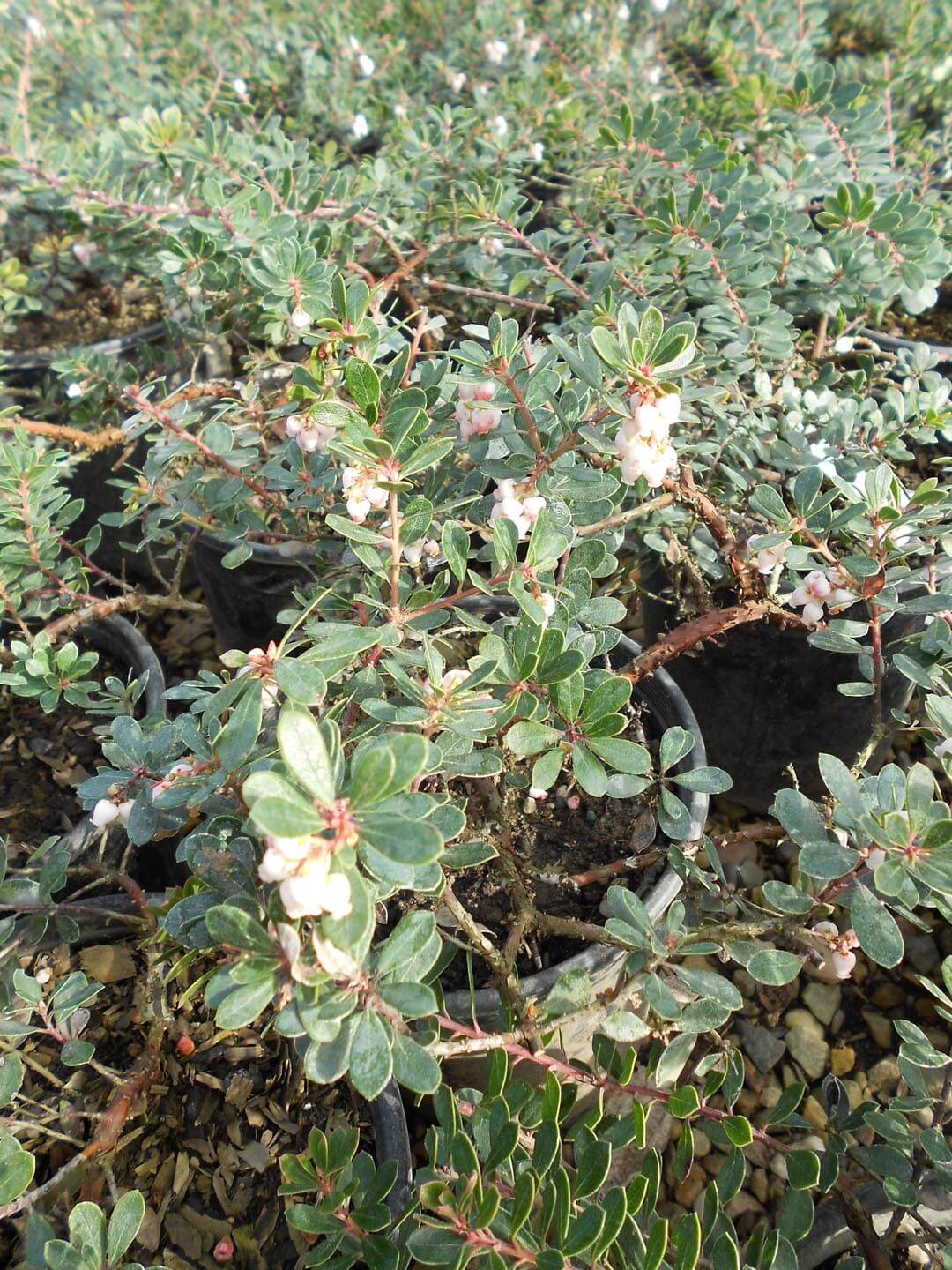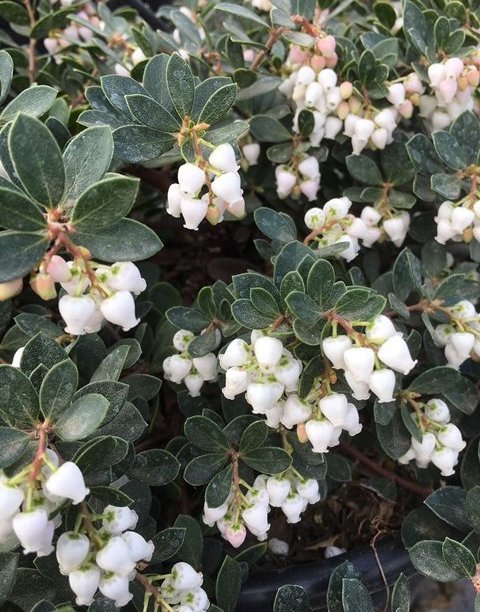


Boething Treeland Farms grows over 1,000 varieties of trees, shrubs, perennials and specialty plants on 10 California nurseries to serve the wholesale landscape and nursery industries throughout the Western United States and beyond.
Plant Type: Ground Covers
Evergreen-Deciduous: Evergreen
Overall Mature Size: Small
Also Grown As: Bush
Mature Height & Spread: 8-14" x 5'
Natural Growth Habit: Spreading
Native To: California
Exposure: Full Sun, Partial Shade
Water: Medium Water, Low Water
Flower Color: Pink
Bloom Time: Spring, Winter
Special Features: Attractive Bark / Attracts Birds/Butterflies / Deer Resistant / Drought Resistant
Container Sizes: #1, #5
Sunset Garden Zones: 6-9, 14-24
Lush, low-brushing foliage is coveted for its success in parched soil and drought conditions (though early irrigation strengthens this capacity). Inconspicuous pink flowers warm the eye through the cold season.
Lush, low-brushing foliage is coveted for its success in parched soil and drought conditions (though early irrigation strengthens this capacity). Inconspicuous pink flowers warm the eye through the cold season.